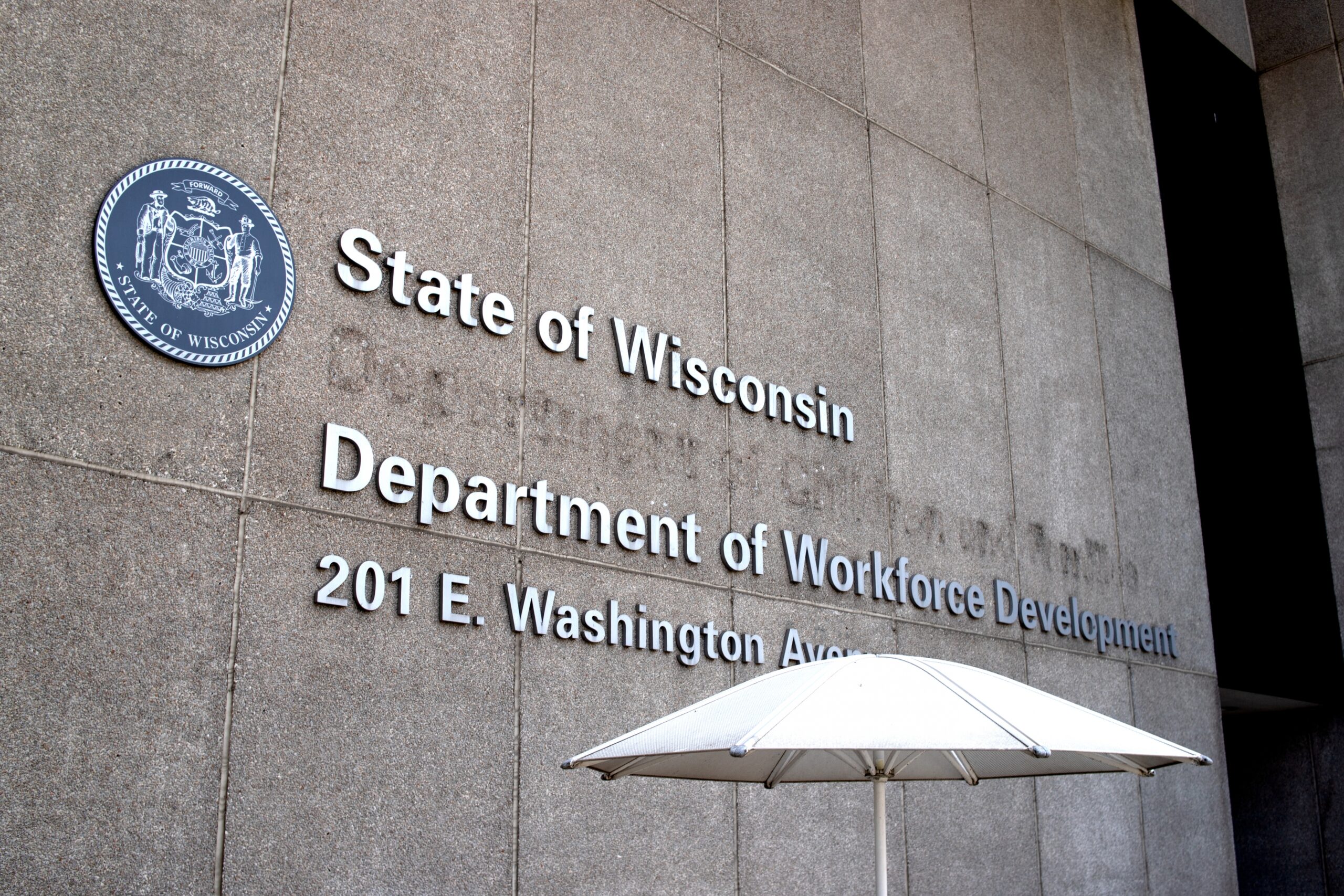A new federal rule could give Wisconsinites more mobility in the labor market, especially for workers at a prominent Dane County company.
The Federal Trade Commission this week voted 3-2 to ban noncompete agreements, which may ban workers from finding jobs with industry competitors after they leave their current jobs. The regulation is already facing legal challenges from business groups.
Under the rule, new noncompete agreements will be banned for all workers. Existing agreements will not be enforceable, except for those with senior executives. The agency defines “senior executives” as workers earning more than $151,164 annually and are in a “policy-making position.”
News with a little more humanity
WPR’s “Wisconsin Today” newsletter keeps you connected to the state you love without feeling overwhelmed. No paywall. No agenda. No corporate filter.
Nearly 30,000 comments were submitted to the FTC when the agency was considering the new rule. Of those, at least 29 written comments specifically mention Epic Systems, a health care software firm in Verona that employs around 13,000 people.
Former Epic employees told the FTC the company’s noncompete policy made it difficult to find work after leaving the firm.
“Epic’s noncompete requires that former employees do not work at a list of their competitors. This list has thousands of entries, and includes many of the large, high-paying companies in the health care software industry,” one former employee wrote to the FTC. “The contract also prevents former employees from working for their customers. Epic’s market share is so large that this precludes working at all large hospital systems in the United States.”
Two former Epic employees shared similar stories with WPR. Both asked that their names not be used because of a fear of impact on their employment.
“(The company’s noncompete policy) really puts people, especially fairly recent college graduates with minimal real world experience, in a pretty big bind,” said one former Epic employee who was with the company for nearly two years ending in 2016. “Because it hamstrings (them) from being able to use the only applicable experience they have up to that point.”
According to the FTC, the regulation will take effect 120 days after it’s published in the Federal Register. But the rule is being challenged in a Texas federal court by the U.S. Chamber of Commerce.
Michael Childers, a labor education professor at the University of Wisconsin-Madison, said noncompete agreements were initially intended to prevent high-level employees from sharing trade secrets with competing companies. Over time, he said, those agreements have extended to rank and file workers.
“Workers are basically being told, ‘You have to agree to this as a condition of employment,’” Childers said. “If you do accept the position and sign the contract, and you decide to leave, then you fear that the company will strictly enforce that noncompete. It greatly limits your opportunities in terms of what you’re able to do to earn a living.”
The FTC estimates that about 18 percent of American workers are currently subject to a noncompete agreement.
Several Wisconsin organizations submitted comments to the FTC during the rule-making process. Wisconsin Manufacturers and Commerce and the Wisconsin Hospital Association submitted written comments opposed to the ban, while the Wisconsin Medical Society supported the ban.
Former employees allege Epic’s noncompete policy stifles opportunities
As of 2021, there were about 4,500 firms that Epic Systems employees were barred from joining for a period of time after leaving the company, according to a list compiled by the Isthmus community newspaper in Madison.
Former Epic employee Greg Ledray told the federal agency that the company requires all employees to sign noncompete clauses when they begin working. Those agreements, he said, last for one year after they leave the company but can run for two years if employees receive Epic stock.
“The combination of a one- or two-year lock-out from any medical software consulting company, or any direct competitor, is a death knell for the former employee’s career for one or two years,” Ledray said. “Many former employees have discussed ‘waiting out’ the noncompete in less lucrative fields.”
An Epic spokesperson said in an email the company is reviewing the FTC’s rule to see how it might affect the company. The spokesperson said the company’s current noncompete policy is aimed at protecting its intellectual property.
“It lists a few dozen companies within health care technology,” the spokesperson said. “It’s important to protect high-tech IP both within the U.S. to safeguard companies that create IP, and abroad to prevent IP created in the U.S. from being stolen.”
Where noncompetes do not serve the purpose of protecting IP, the spokesperson said Epic agrees with the FTC’s vote.
But a former Epic employee who was with the company for about a year and a half, ending in 2022, told WPR the noncompete agreements appeared aimed at helping Epic retain talent rather than protecting the company’s intellectual property.
“It’s definitely about people retention, and maybe ‘people investment’ from an education standpoint, more than it is about, I think, guarding any specific intellectual secret in our intellectual property,” the former employee said.
Labor attorney, state business lobby weigh in
Epic isn’t the only company in the state using noncompetes. Nick Fairweather, an attorney for Hawks Quindel, represents employees in cases involving noncompete agreements. He said many of the noncompete cases his firm handles relate to sales professionals across different industries.
“If you’ve developed a client or customer list or a prospect list with one employer and are looking to leave to work with a different employer, obviously, the first employer has an interest in maintaining the confidentiality, so to speak, of that customer list or prospect list,” Fairweather said.
He said health care and tech are other industries in Wisconsin where noncompetes are fairly common.
“I’ve seen a lot of people that have been really hamstrung by noncompetes in their chosen field of work,” Fairweather said. “A lot of people don’t have the resources to take a noncompete to a court and have a court consider whether it’s enforceable or not.”
John Heywood, a distinguished professor of economics at UW-Milwaukee, said noncompetes are often a tool used to help suppress wages.
“If I’ve been working at your firm and their competitors (are) across the street, but I can’t use them to say, ‘look, I can get a better wage,’ because I have a noncompete, you can anticipate that wages will be held down,” he said.
But business organizations say without the ability to require noncompete agreements, employers would be vulnerable.
Rachel Ver Velde, associate vice president of government relations for Wisconsin Manufacturers and Commerce, said her organization’s members are concerned about the rule.
She said many of WMC’s members are facing a shortage of skilled workers, so they often have to hire unskilled workers and pay for training or education programs to give them the skills they need.
“If the noncompete rule goes into effect … it will make it less likely for employers to want to invest these significant dollars into employees to get these skills training,” she said. “Because there’s no guarantee that they’ll stay for any duration of time and they’d essentially be just having their employees be handed over to their competitors.”
It’s unclear whether courts will allow the new rule to stand or whether it will ultimately be overturned.
“This is all going to be subject to judicial challenges,” said Fairweather, the attorney. “It’ll be interesting to see how the federal courts in Texas and ultimately, I would imagine, the U.S. Supreme Court deals with it as well.”
Editor’s note: Epic Systems is a WPR business sponsor.
Wisconsin Public Radio, © Copyright 2025, Board of Regents of the University of Wisconsin System and Wisconsin Educational Communications Board.







